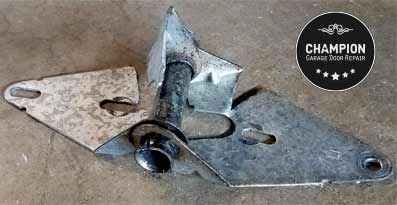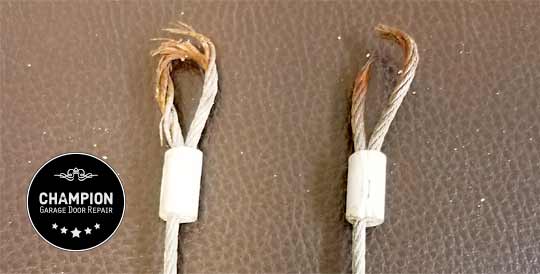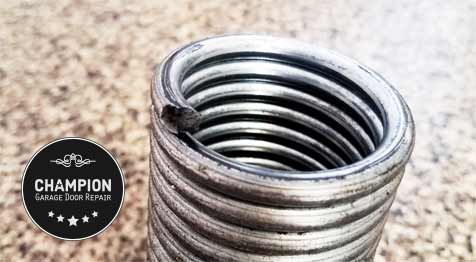A garage door is more than just an assembly of panels that opens and closes; it consists of different moving parts like springs, pulleys, hinges, rollers, and other mechanisms which will wear out over time.
What Causes Your Garage Door to Wear Out?
Nearly all new garage doors last at least 3-5 years without needing major repairs. However, with regular use, it’s really at the 8-10 years mark when significant repairs are required. Several reasons contribute to worn-down mechanical garage door parts, but ultimately, it boils down to the following three root causes.
1. Abrasion
Abrasion is the process of scuffing or scratching. It happens when contact takes place between two or more surfaces in motion, with one surface removing material from the other. In overhead door systems, abrasion can occur when the rollers rotate inside the door’s tracks, the torsion tube rotates within a bearing or bushing, cables wrap around the pulleys, and when the trolley travels along the opener’s rail.

2. Corrosion
Corrosion is an electrochemical reaction process that occurs when metal is exposed to air moisture and other substances, such as salty air. The most common type of corrosion is rust, which accelerates the wear of the garage door mechanisms. Rusted equipment can also pose a safety hazard, as corroded metal parts like door panels, supporting brackets, tracks, springs, bearings, cables, and hinges are structurally damaged. In untreated severe cases, this process may cause the garage door to buckle under its own weight and collapse.

3. Fatigue
Fatigue is the initiation of cracks due to the continuous application of loads and stress. In metal components, cracks continue to grow until they exceed the toughness of the metal. Load-bearing objects such as garage door torsion springs and extension springs will experience fatigue over time, resulting in a fractured coil (broken spring). Corrosive agents like rust can accelerate the propagation of cracks, leading to premature breakage.

How to Reduce Breakage and Minimize Repairs
Proper installation of garage doors, springs, and openers, along with adequate maintenance and lubrication, is key to ensuring smooth and continuous operation of the garage door, and reducing the rate of wear. Proper weather sealing also helps prevent corrosion caused by moisture, salty air, or rainwater, as well as abrasion caused by dust particles.
On the other hand, misaligned components, balance problems, and a lack of lubrication will cause metal parts to scrape destructively against each other, causing excessive heat, noise, structural damage, and failure. Consult a licensed garage door repair company for more maintenance solutions for your garage door.








